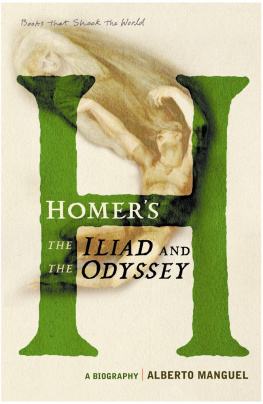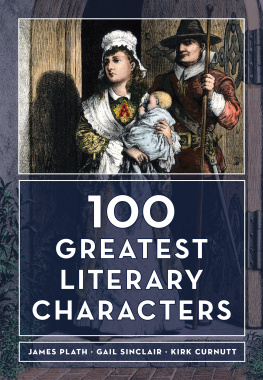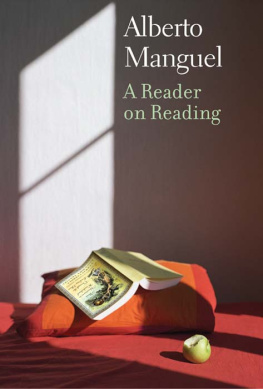FABULOUS MONSTERS
Alberto Manguel
Fabulous Monsters
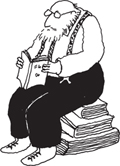
Dracula, Alice, Superman, and Other
Literary Friends
With Illustrations by the Author

Published with support from the Fund established in memory of Oliver Baty Cunningham, a distinguished graduate of the Class of 1917, Yale College, Captain, 15th United States Field Artillery, born in Chicago September 17, 1894, and killed while on active duty near Thiaucourt, France, September 17, 1918, the twenty-fourth anniversary of his birth.
Copyright 2019 by Alberto Manguel
c/o Schavelzon Graham Agencia Literaria, S. L.
www.schavelzongraham.com
All rights reserved. This book may not be reproduced, in whole or in part, including illustrations, in any form (beyond that copying permitted by Sections 107 and 108 of the U.S. Copyright Law and except by reviewers for the public press), without written permission from the publishers.
Yale University Press books may be purchased in quantity for educational, business, or promotional use. For information, please e-mail (U.K. office).
Designed by Nancy Ovedovitz. Set in Bembo and Scala Sans Bold types by Integrated Publishing Solutions. Printed in the United States of America.
Library of Congress Control Number: 2019936416
ISBN 978-0-300-24738-1 (hardcover : alk. paper)
A catalogue record for this book is available from the British Library.
This paper meets the requirements of ANSI/NISO Z 39.481992 (Permanence of Paper).
10 9 8 7 6 5 4 3 2 1
To Amelia, who
likes princesses, and
to Olivia, who prefers
dragons
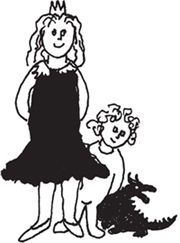
AMELIA & OLIVIA
CONTENTS
PREFACE
This is a child! Haigha replied eagerly, coming in front of Alice to introduce her, and spreading out both his hands towards her in an Anglo-Saxon attitude. We only found it to-day. Its as large as life, and twice as natural!
I always thought they were fabulous monsters! said the Unicorn. Is it alive?
It can talk, said Haigha solemnly.
The Unicorn looked dreamily at Alice, and said Talk, child.
Alice could not help her lips curling up into a smile as she began: Do you know, I always thought Unicorns were fabulous monsters, too? I never saw one alive before!
Well, now that we have seen each other, said the Unicorn, if youll believe in me, Ill believe in you. Is that a bargain?
LEWIS CARROLL , Through the Looking-Glass
Tourist guides offer excursions along the arduous paths of Odysseus and Don Quixote. Crumbling buildings are said to house Desdemonas bedchamber and Juliets balcony. A Colombian village assures us that it is the Macondo of Aureliano Buenda, and the island of Juan Fernandez boasts of having welcomed, centuries ago, that singular imperialist Robinson Crusoe. For many years now, the British Postal Service has busied itself with correspondence addressed to Mr. Sherlock Holmes, Esq., at 221B Baker Street, while Charles Dickens used to receive an angry stream of letters blaming him for the death of Little Nell in The Old Curiosity Shop. Biology tells us that we descend from creatures of flesh and blood, but intimately we know that we are the sons and daughters of ghosts of ink and paper. Ages ago, Luis de Gngora defined them with these words:
In his playhouse built on lofty drapes,
Sleep, the author of dramatic scenes,
Dresses up phantoms of becoming shapes.
The term fiction entered the English language in the early fifteenth century with the meaning something invented or imagined. It derived, etymological dictionaries tell us, via the French, from the past participle of the Latin verb fingere, which originally meant to knead or form out of clay. Fiction is then a sort of verbal Adam molded from the primordial dust in the Authors image and infused by the Author with the breath of life. Perhaps that is why, contrary to appearances, fictional characters at their best often seem more alive than our friends of solid flesh. Far from sticking to their stories, they change the plot at every one of our readings, bringing certain scenes to light and obscuring others, adding a startling episode that we had mysteriously forgotten or a detail that previously remained unnoticed. Heraclituss warning about time is true for every reader: we never step twice into the same book.
For readers, the revelation of the world frequently occurs in the pages of their books. When Alice, in Through the Looking-Glass, meets Humpty Dumpty perched precariously on a narrow wall, she solicitously asks him if he doesnt think hed be safer down on the ground. Of course I dont think so! Humpty growls back. Why, if ever I did fall offwhich theres no chance ofbut if I did he makes a solemn pause, The King has promised mewith his very own mouthtoto... To send all his horses and all his men, Alice interrupts, rather unwisely. Humpty breaks into a sudden passion. Youve been listening at doorsand behind treesand down chimneysor you couldnt have known it! he cries. I havent, indeed! Alice answers very gently. Its in a book. No true reader would find Alices explanation surprising.
Readers around the world express veneration for the likes of Shakespeare and Cervantes, but these beings, immortalized in hopeful and stern portraits, are less tangible than their immortal creations. King Lear and Lady Macbeth, Don Quixote and Dulcinea are real presences even for many of those who have never read their books. We are acquainted with the entangled passions of Queen Dido and of Don Juan far more than with the intimate lives of Virgil and Molire, except in those aspects revealed in the novels of Hermann Broch and Mikhail Bulgakov. Readers have always known that the dreams of fiction give birth to the world we call real.
Dante was well aware of this. In Canto IV of the Inferno, after passing through the terrible gates that banish all hope, Virgil shows Dante the Noble Castle that houses the souls of the just who were born before the coming of Christ. Among the men and women of sorrowful slow eyes whom Dante sees there, he notices Aeneas, the hero dreamt up by Virgil, and mentions him with just two words: ed Enea. Dante seems to understand that if he must grant Virgil the complex reality required as one of the three main protagonists of his Commedia, the imaginary character (Aeneas) cannot have the same literary weight as the character who imagined him (Virgil). Aeneas exists in the Commedia, but only as a fleeting shadow, so that Virgil can become rooted in the readers mind not just as the historical author of the Aeneid but as the memorable traveling companion in Dantes road trip.
In my adolescence, thanks to a quirky high school teacher, we read a few of the writings of Edmund Husserl on phenomenology, which, to our idealistic minds, sounded enthralling. While most of the adult world seemed to insist that only tangible things were worth caring for, Husserl, to our delight, argued that we can forge a bond, even a deep bond, with things that are deemed inexistent. Mermaids and unicorns, as far as we know, have no proven tangible existence, even though medieval Chinese bestiaries declare that the reason unicorns are not often seen is because of their extreme natural shyness. And yet, Husserl argued, the human mind can be intentionally directed towards those imaginary beings and create between us and them what he unpoetically calls a normal dyadic relationship. I have established many such relationships with hundreds of these creatures.
Next page

